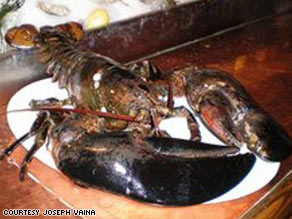 The premise is simple enough. For all the reasons this litigious society can think of to sue each other, there's plenty of information available on how and even why to be a plaintiff against our spouses, neighbors, employers, drivers who make the mistake of being on the same highway as us and anyone else who happens to wander into our field of vision at just the wrong moment. But what if you want to be a defendant?
The premise is simple enough. For all the reasons this litigious society can think of to sue each other, there's plenty of information available on how and even why to be a plaintiff against our spouses, neighbors, employers, drivers who make the mistake of being on the same highway as us and anyone else who happens to wander into our field of vision at just the wrong moment. But what if you want to be a defendant?Think about it. There are no carefully marked roadmaps, no oral histories to pass down, not even a Defendants-for-Dummies guide. And nature hates a vacuum...
Enter May It Please the Court blogger, J. Craig Williams. In a dry, tongue-and-cheek approach that only someone who has actually witnessed innumerable people screw up their lives could truly muster (he's a defense lawyer), Craig takes readers through a litany of disastrous life choices that could only result in ending up on the wrong side of a lawsuit.
To wit: the story of a 63-year-old man who lost his job and decided that the best course of action was to rob a bank teller, immediately turn himself in and then ask the judge for a three-year sentence. "Yep, a cot and three squares a day until social security kicks in." Or how about Krispy Kreme, sued by disgruntled shareholders "because they weren't warned that the craze for Atkins-like diets would eat into company profits." Or the Vancouver man who partied all night and then went the next morning to seek employment... with the local police department. "Instead of a job application, he went away with a DUI ticket."
You can't make this stuff up. Even if you could, why would you? "How to Get Sued" is your best bet if you're looking for either an instructional guide to making bad choices or just a good laugh.












